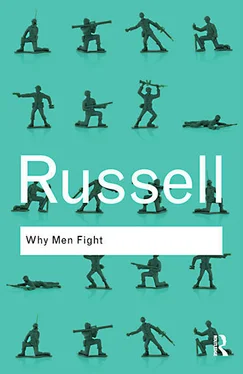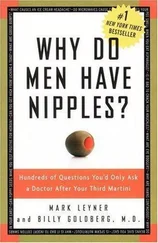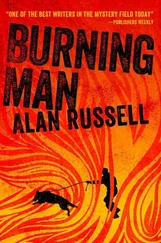Bertrand Russell - Why Men Fight
Здесь есть возможность читать онлайн «Bertrand Russell - Why Men Fight» весь текст электронной книги совершенно бесплатно (целиком полную версию без сокращений). В некоторых случаях можно слушать аудио, скачать через торрент в формате fb2 и присутствует краткое содержание. Город: London, Год выпуска: 2010, ISBN: 2010, Издательство: Routledge, Жанр: Философия, Публицистика, на английском языке. Описание произведения, (предисловие) а так же отзывы посетителей доступны на портале библиотеки ЛибКат.
- Название:Why Men Fight
- Автор:
- Издательство:Routledge
- Жанр:
- Год:2010
- Город:London
- ISBN:978-0-203-86469-2
- Рейтинг книги:3 / 5. Голосов: 1
-
Избранное:Добавить в избранное
- Отзывы:
-
Ваша оценка:
- 60
- 1
- 2
- 3
- 4
- 5
Why Men Fight: краткое содержание, описание и аннотация
Предлагаем к чтению аннотацию, описание, краткое содержание или предисловие (зависит от того, что написал сам автор книги «Why Men Fight»). Если вы не нашли необходимую информацию о книге — напишите в комментариях, мы постараемся отыскать её.
— discusses war, pacifism, reason, impulse and personal liberty, and greatly contributed to Russells fame as a formidable social critic and anti-war activist.
“The supreme principle, both in politics and in private life, should be to promote all that is creative, and so to diminish the impulses and desires that centre around possession.”
Bertrand Russell “Russell is one of the most profound thinkers of the modern age.”
The New York Times
Why Men Fight — читать онлайн бесплатно полную книгу (весь текст) целиком
Ниже представлен текст книги, разбитый по страницам. Система сохранения места последней прочитанной страницы, позволяет с удобством читать онлайн бесплатно книгу «Why Men Fight», без необходимости каждый раз заново искать на чём Вы остановились. Поставьте закладку, и сможете в любой момент перейти на страницу, на которой закончили чтение.
Интервал:
Закладка:
The unifying of life ought not to demand the suppression of the casual desires that make amusement and play; on the contrary, everything ought to be done to make it easy to combine the main purposes of life with all kinds of pleasure that are not in their nature harmful. Such things as habitual drunkenness, drugs, cruel sports, or pleasure in inflicting pain are essentially harmful, but most of the amusements that civilized men naturally enjoy are either not harmful at all or only accidentally harmful through some effect which might be avoided in a better society. What is needed is, not asceticism or a drab Puritanism, but capacity for strong impulses and desires directed towards large creative ends. When such impulses and desires are vigorous, they bring with them, of themselves, what is needed to make a good life.
But although amusement and adventure ought to have their share, it is impossible to create a good life if they are what is mainly desired. Subjectivism, the habit of directing thought and desire to our own states of mind rather than to something objective, inevitably makes life fragmentary and unprogressive. The man to whom amusement is the end of life tends to lose interest gradually in the things out of which he has been in the habit of obtaining amusement, since he does not value these things on their own account, but on account of the feelings which they arouse in him. When they are no longer amusing, boredom drives him to seek some new stimulus, which fails him in its turn. Amusement consists in a series of moments without any essential continuity; a purpose which unifies life is one which requires some prolonged activity, and is like building a monument rather than a child’s castle in the sand.
Subjectivism has other forms beside the mere pursuit of amusement. Many men, when they are in love, are more interested in their own emotion than in the object of their love; such love does not lead to any essential union, but leaves fundamental separateness undiminished. As soon as the emotion grows less vivid the experience has served its purpose, and there seems no motive for prolonging it. In another way, the same evil of subjectivism was fostered by Protestant religion and morality, since they directed attention to sin and the state of the soul rather than to the outer world and our relations with it. None of these forms of subjectivism can prevent a man’s life from being fragmentary and isolated. Only a life which springs out of dominant impulses directed to objective ends can be a satisfactory whole, or be intimately united with the lives of others.
The pursuit of pleasure and the pursuit of virtue alike suffer from subjectivism; Epicureanism and Stoicism are infected with the same taint. Marcus Aurelius, enacting good laws in order that he might be virtuous, is not an attractive figure. Subjectivism is a natural outcome of a life in which there is much more thought than action: while outer things are being remembered or desired, not actually experienced, they seem to become mere ideas. What they are in themselves becomes less interesting to us than the effects which they produce in our own minds. Such a result tends to be brought about by increasing civilization, because increasing civilization continually diminishes the need for vivid action and enhances the opportunities for thought. But thought will not have this bad result if it is active thought, directed towards achieving some purpose; it is only passive thought that leads to subjectivism. What is needed is to keep thought in intimate union with impulses and desires, making it always itself an activity with an objective purpose. Otherwise, thought and impulse become enemies, to the great detriment of both.
In order to make the lives of average men and women less fragmentary and separate, and to give greater opportunity for carrying out creative impulses, it is not enough to know the goal we wish to reach, or to proclaim the excellence of what we desire to achieve. It is necessary to understand the effect of institutions and beliefs upon the life of impulse, and to discover ways of improving this effect by a change in institutions. And when this intellectual work has been done, our thought will still remain barren unless we can bring it into relation with some powerful political force. The only powerful political force from which any help is to be expected in bringing about such changes as seem needed is Labour. The changes required are very largely such as Labour may be expected to welcome, especially during the time of hardship after the war. When the war is over, labour discontent is sure to be very prevalent throughout Europe, and to constitute a political force by means of which a great and sweeping reconstruction may be effected.
The civilized world has need of fundamental change if it is to be saved from decay—change both in its economic structure and in its philosophy of life. Those of us who feel the need of change must not sit still in dull despair: we can, if we choose, profoundly influence the future. We can discover and preach the kind of change that is required—the kind that preserves what is positive in the vital beliefs of our time, and, by eliminating what is negative and inessential, produces a synthesis to which all that is not purely reactionary can give allegiance. As soon as it has become clear what kind of change is required, it will be possible to work out its parts in more detail. But until the war is ended there is little use in detail, since we do not know what kind of world the war will leave. The only thing that seems indubitable is that much new thought will be required in the new world produced by the war. Traditional views will give little help. It is clear that men’s most important actions are not guided by the sort of motives that are emphasized in traditional political philosophies. The impulses by which the war has been produced and sustained come out of a deeper region than that of most political argument. And the opposition to the war, on the part of those few who have opposed it, comes from the same deep region. A political theory, if it is to hold in times of stress, must take account of the impulses that underlie explicit thought: it must appeal to them, and it must discover how to make them fruitful rather than destructive.
Economic systems have a great influence in promoting or destroying life. Except slavery, the present industrial system is the most destructive of life that has ever existed. Machinery and large-scale production are ineradicable, and must survive in any better system which is to replace the one under which we live. Industrial federal democracy is probably the best direction for reform to take.
Philosophies of life, when they are widely believed, also have a very great influence on the vitality of a community. The most widely accepted philosophy of life at present is that what matters most to a man’s happiness is his income. This philosophy, apart from other demerits, is harmful because it leads men to aim at a result rather than an activity, an enjoyment of material goods in which men are not differentiated, rather than a creative impulse which embodies each man’s individuality. More refined philosophies, such as are instilled by higher education, are too apt to fix attention on the past rather than the future, and on correct behaviour rather than effective action. It is not in such philosophies that men will find the energy to bear lightly the weight of tradition and of ever-accumulating knowledge.
The world has need of a philosophy, or a religion, which will promote life. But in order to promote life it is necessary to value something other than mere life. Life devoted only to life is animal, without any real human value, incapable of preserving men permanently from weariness and the feeling that all is van-ity. If life is to be fully human it must serve some end which seems, in some sense, outside human life, some end which is impersonal and above mankind, such as God or truth or beauty. Those who best promote life do not have life for their purpose. They aim rather at what seems like a gradual incarnation, a bringing into our human existence of something eternal, something that appears to imagination to live in a heaven remote from strife and failure and the devouring jaws of Time. Contact with this eternal world—even if it be only a world of our imagin-ing—brings a strength and a fundamental peace which cannot be wholly destroyed by the struggles and apparent failures of our temporal life. It is this happy contemplation of what is eternal that Spinoza calls the intellectual love of God. To those who have once known it, it is the key of wisdom.
Читать дальшеИнтервал:
Закладка:
Похожие книги на «Why Men Fight»
Представляем Вашему вниманию похожие книги на «Why Men Fight» списком для выбора. Мы отобрали схожую по названию и смыслу литературу в надежде предоставить читателям больше вариантов отыскать новые, интересные, ещё непрочитанные произведения.
Обсуждение, отзывы о книге «Why Men Fight» и просто собственные мнения читателей. Оставьте ваши комментарии, напишите, что Вы думаете о произведении, его смысле или главных героях. Укажите что конкретно понравилось, а что нет, и почему Вы так считаете.












